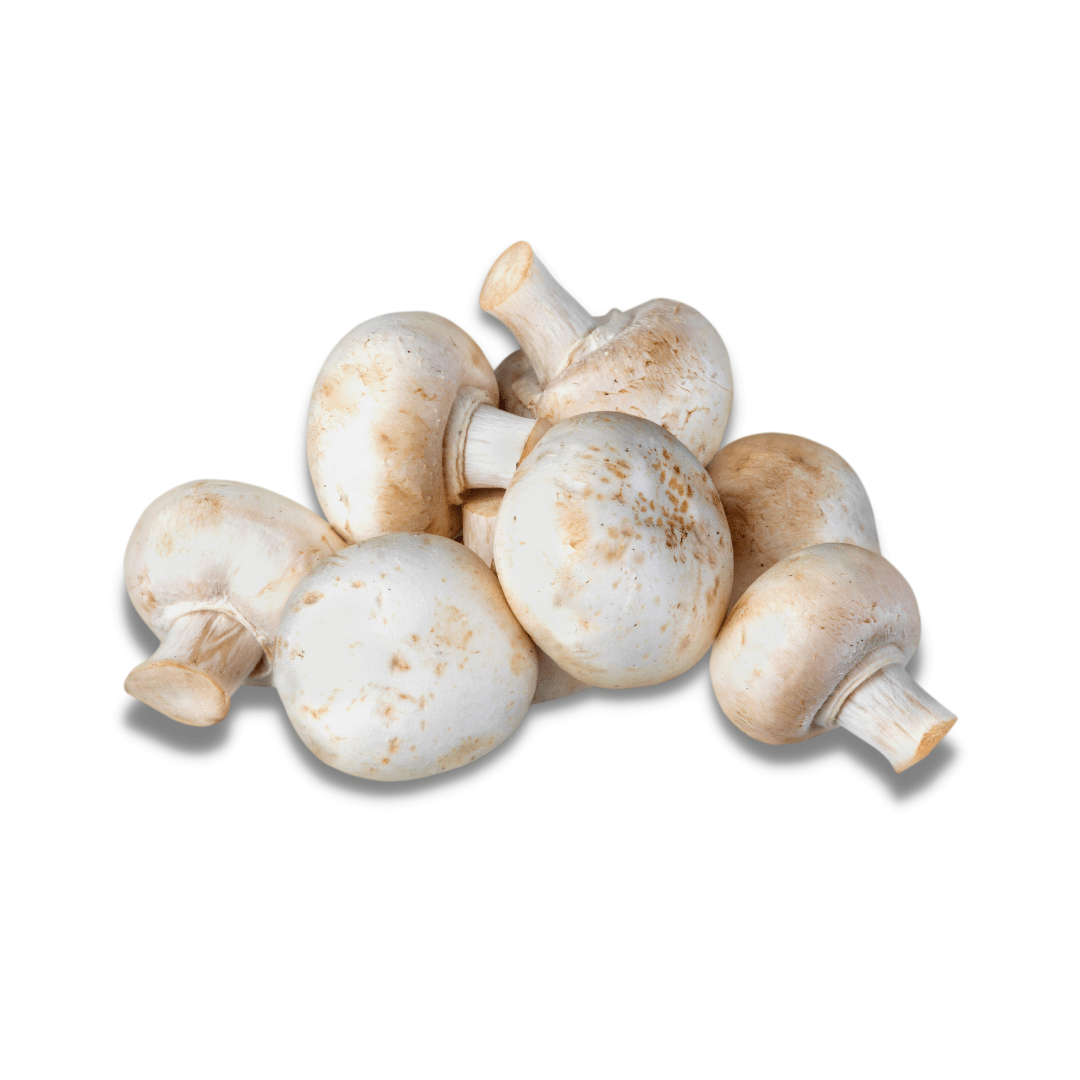About
Mushrooms are a type of fungi that grow above ground and have a distinct cap and stem structure. They come in a variety of shapes, sizes, and colors and are commonly used in cooking.
Health Benefits:
Mushrooms are low in calories and high in nutrients, making them a healthy addition to any diet. Some of the potential health benefits of mushrooms include:
-
Boosting Immune System: Mushrooms contain beta-glucans, which are complex sugars that can help boost the immune system and improve overall health.
-
Rich in Antioxidants: They are a good source of antioxidants like selenium, which can help protect the body against oxidative stress and lower the risk of chronic diseases.
-
Anti-Inflammatory Properties: Some types of mushrooms have anti-inflammatory properties that can help reduce inflammation in the body, which is linked to a variety of health problems.
-
May Help Lower Cholesterol: Mushrooms contain compounds that can help lower cholesterol levels and reduce the risk of heart disease.
-
May Help Fight Cancer: Some studies suggest that certain compounds found in mushrooms may have anti-cancer properties and could help prevent the growth and spread of cancer cells.
Diseases that can be cured:
While mushrooms cannot cure diseases on their own, they may help improve overall health and reduce the risk of certain conditions. Some of the health problems that mushrooms may help prevent or reduce the risk of include:
- Cardiovascular Disease
- Diabetes
- Cancer
- Obesity
- Alzheimer’s Disease
Energy and Macronutrient Content per serving (50g):
| Nutrient | Amount |
|---|---|
| Calories | 8.5 kcal |
| Carbohydrates | 1.2 g |
| Protein | 1.0 g |
| Fat | 0.1 g |
| Fiber | 0.6 g |
| Water | 47.0 g |
Vitamin Content per serving (50g):
| Vitamin | Amount |
|---|---|
| Vitamin D | 0.8 µg (33 IU) |
| Thiamine (B1) | 0.02 mg |
| Riboflavin (B2) | 0.28 mg |
| Niacin (B3) | 2.4 mg |
| Pantothenic acid (B5) | 0.28 mg |
| Vitamin B6 | 0.1 mg |
| Folate | 6.0 µg |
| Vitamin C | 0.6 mg |
| Vitamin E | 0.2 mg |
| Vitamin K | 7.5 µg |
| Biotin | 2.5 µg |
| Choline | 5.5 mg |
Mineral Content per serving (50g):
| Mineral | Amount |
|---|---|
| Calcium | 1.5 mg |
| Iron | 0.2 mg |
| Magnesium | 6.0 mg |
| Phosphorus | 17.5 mg |
| Potassium | 200.5 mg |
| Sodium | 1.0 mg |
| Zinc | 0.2 mg |
| Copper | 0.1 mg |
| Manganese | 0.1 mg |
| Selenium | 5.5 µg |
| Chromium | 1.5 µg |
| Molybdenum | 2.5 µg |
What are the health benefits of mushrooms?
Mushrooms offer various health benefits, including boosting the immune system, supporting brain health, and providing essential nutrients.
How to cook mushrooms?
Mushrooms can be cooked in numerous ways, such as sautéing, grilling, or roasting. They are versatile and can be used in various dishes.
Is mushroom good for weight loss?
Mushrooms are low in calories and fat while being rich in fiber, making them a suitable choice for weight loss diets.
Are there any side effects of consuming mushrooms?
While most mushrooms are safe to eat, some wild mushrooms can be toxic. It's essential to identify edible mushrooms or purchase them from reputable sources.
Can mushrooms boost the immune system?
Yes, mushrooms contain beta-glucans and other compounds that can enhance immune function and provide immune system support.
How does mushroom support brain health?
Certain types of mushrooms contain compounds that may have neuroprotective properties, promoting brain health and cognitive function.
What nutrients are present in mushrooms?
Mushrooms are a good source of vitamins, minerals, and antioxidants. They also contain dietary fiber and can be a source of protein for vegetarians.
How to incorporate mushrooms into your diet?
Mushrooms can be added to various dishes such as stir-fries, salads, omelets, or used as a meat substitute in vegetarian or vegan recipes.
Does mushroom have antioxidant properties?
Yes, mushrooms contain antioxidants that help protect cells from damage caused by free radicals and support overall health.
Can mushrooms help lower cholesterol levels?
Some types of mushrooms, such as shiitake mushrooms, may help lower cholesterol levels due to their active compounds.
What are the different types of mushrooms?
There are various types of mushrooms, including button mushrooms, shiitake mushrooms, portobello mushrooms, oyster mushrooms, and more.
Can mushrooms be consumed raw?
While mushrooms can be eaten raw, they are commonly cooked to enhance their flavor and digestibility.
Are there any mushroom-based soups or stews?
Yes, mushroom soup and mushroom stew are popular dishes that highlight the earthy flavor of mushrooms.
Does mushroom aid in digestion?
Mushrooms are a good source of dietary fiber, which can support healthy digestion and regular bowel movements.
Can mushrooms help in managing diabetes?
Some research suggests that certain mushrooms may have properties that can help regulate blood sugar levels, but it's important to consult a healthcare professional for personalized advice.
What are the different cooking methods for mushrooms?
Mushrooms can be sautéed, grilled, roasted, or added to soups, stews, and stir-fries. They can also be used as a meat substitute in various recipes.
Can mushrooms be used in vegetarian or vegan dishes?
Absolutely! Mushrooms are a popular ingredient in vegetarian and vegan cooking and can provide a meaty texture and umami flavor to dishes.
How to store mushrooms to keep them fresh?
Store mushrooms in a paper bag or a loosely closed container in the refrigerator to help maintain their freshness. Avoid storing them in a plastic bag, as it can promote moisture buildup.
Can mushrooms be grilled or roasted?
Yes, mushrooms can be grilled or roasted to bring out their rich, earthy flavors. They can be marinated or seasoned before grilling or roasting for added taste.









